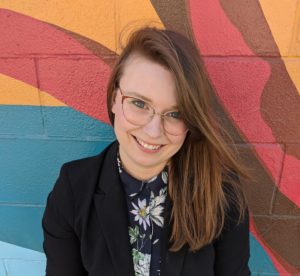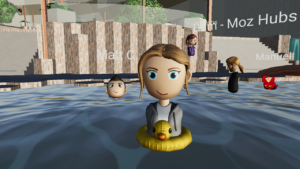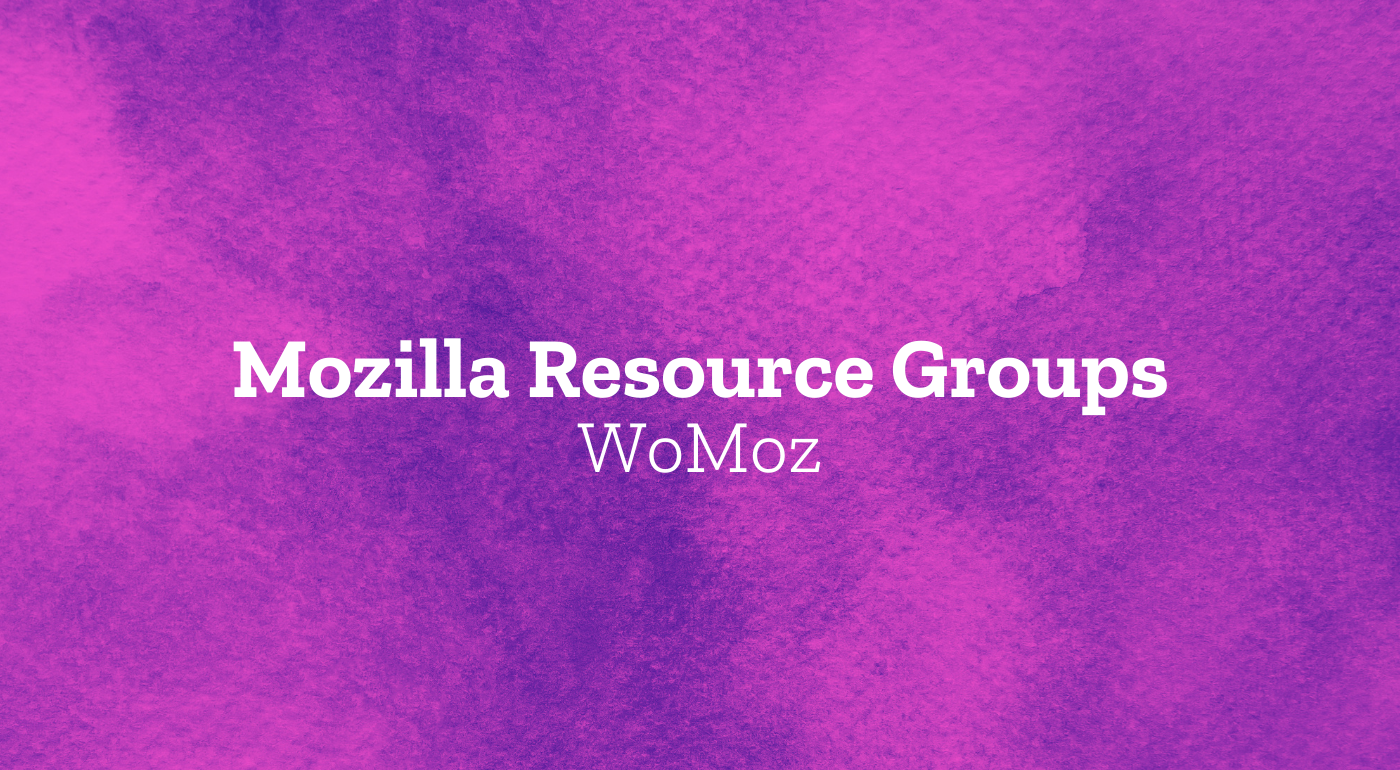It’s our mission at Mozilla to build an internet that includes everyone, regardless of demographics and opportunities, and we’re building our team the same way. We believe our growing list of Mozilla Resource Groups (MRGs) — Afrozillians, Disability@Mozilla, Latin Pride, Mozilla API, Pridezilla, and Women of Mozilla — are critical to our success.
We also believe that the best way to understand these groups is through the people in them. Below, Mozilla Senior Product Manager Elgin-Skye McLaren shares what she’s learned from getting involved with Women of Mozilla and other MRGs — and what she’s excited about going forward.

How did you get involved with Women of Mozilla (WoMoz)?
Initially it was through the WoMoz learning series, which offers professional development opportunities for members of the MRG. They were doing a set of StrengthsFinder workshops, and a teammate messaged me about it because she thought I might be interested. I’d actually worked with another MRG, Pridezilla, a few months earlier — not as a member, but because I’m part of the Hubs team; we’d helped put on a virtual Pride Month event.
But I hadn’t heard about Women of Mozilla at that point. So I jumped into the Slack channel, and it was such a nice community of folks. I did sign up for the workshops, which have been great, and I’ve also enjoyed just being able to connect with other women at the company. Mozilla is so distributed — and I live in a very remote part of Canada and don’t have many opportunities to see people in person — so I especially appreciate having a place where I can chat with people who might have some similar experiences to me, and who I can learn from.
What activities have you been part of?
It’s only been a few months at this point, so the StrengthsFinder workshops are the only formal events I’ve joined so far. For that, we get together once every two weeks for training and breakout sessions. I think it’s really helped us learn not only what we’re good at, but what we actually like — and what skills we want to develop.
There’s also a lot of activity in the Slack channel. Sometimes we just give each other shout-outs — if one of our members is presenting for their team during an All Hands meeting, for example, we’ll tell them, “Hey, great work!” We do discuss gender-related issues, too. The other day someone shared an update about one of the company harassment trainings, and we’ve talked about things like being a shorter person in business, which of course is more common among women. I’m on the short side myself, and I’ve been in so many meetings where I’m physically looking up at everyone else in the room. It can make it harder to be heard. And even if you don’t chime in on those Slack conversations live, the channel functions as sort of a list of people who might be willing to talk with you one-on-one, when you want another woman’s viewpoint. You can also sign up for random one-on-ones with Donut, though I haven’t done that yet because I’m already in some of those for other groups.
It’s just a great way to build new relationships; I’ve met so many people already, through the workshops and the channel. I’m relatively new in my role — I was a community manager before — and it’s been really helpful to hear how other people have built up their skills or explored new areas. I feel like it helps me plan my own trajectory. It also helps day to day; several times I’ve been in Hubs meetings where we needed to talk to someone from another team, and I already knew someone through the MRG.

Elgin, hanging out in Mozilla Hubs
Tell us more about the collaboration between Pridezilla and Hubs.
That was so much fun — it was one of the highlights of the year for me. They reached out several weeks in advance and a few of us started meeting. We learned more about what they had in mind for the celebration, and they learned more about Hubs and what the product could do. Then we got our artists involved and added some customization to a scene we’d built, to decorate the space. We actually ended up sharing a version of that publicly, too, so other people could use it for their own Pride celebrations.
For the events themselves, we held them throughout the day to make sure people from different time zones could attend, and it was all really joyful. People shared photos from previous years; there were booths; we had a DJ. With the pandemic, the past couple of years have been tough, even for people who normally work remotely, so being able to celebrate together was great.
Where is Mozilla at right now in terms of D&I?
We are always striving to do better, but what I really appreciate is being at a company that takes D&I seriously. It’s easy to make commitments and not actually do much in practice. Mozilla is setting targets and making the results public, too. It’s definitely an ongoing conversation, not just in MRGs but in our all-company channels and All Hands meetings; we’re encouraged to speak up. And I know it’s important to our senior leadership. I helped plan a fireside chat around D&I for the MRG with some of them right now.
I see D&I represented a lot in everyday conversations, too, whether it’s hiring or product management. There’s an understanding that it is inherently valuable to have a diversity of experiences in the room when you’re making decisions. Hubs is a great example, actually — it’s built the way it is in part because some of the people on our team have been in virtual spaces where you could hide behind avatars and bad actors could come in and make things toxic really quickly. In a Hubs space, no one without the URL can have access, which gives everyone the ability to come together with their communities safely.
What are you excited about — for yourself, and for D&I at Mozilla?
For me, I’m definitely going to keep my eye on other Women of Mozilla workshops, because this one has been so useful. I’m about six months into being a product manager, and I’ve been helping out with product lead responsibilities, too, doing more strategic work. So I’m really glad I’ve been able to reflect on what my strengths are and how I can bring those to the team, to bring everyone together and make sure more people are included in helping shape the future of Hubs.
In terms of Mozilla, it’s exciting to see Women of Mozilla and the other MRGs continue to grow, and to build solidarity with one another. I’d love to work together more on things like breaking down barriers to entry for candidates. I think we do pretty well with our job postings, but I’ve seen firsthand how relationships can help create access, too — I first got involved with Mozilla through a speakers program for open-source volunteers. The more we create those kinds of connections, with outside groups and with each other, the better off we’ll all be.
